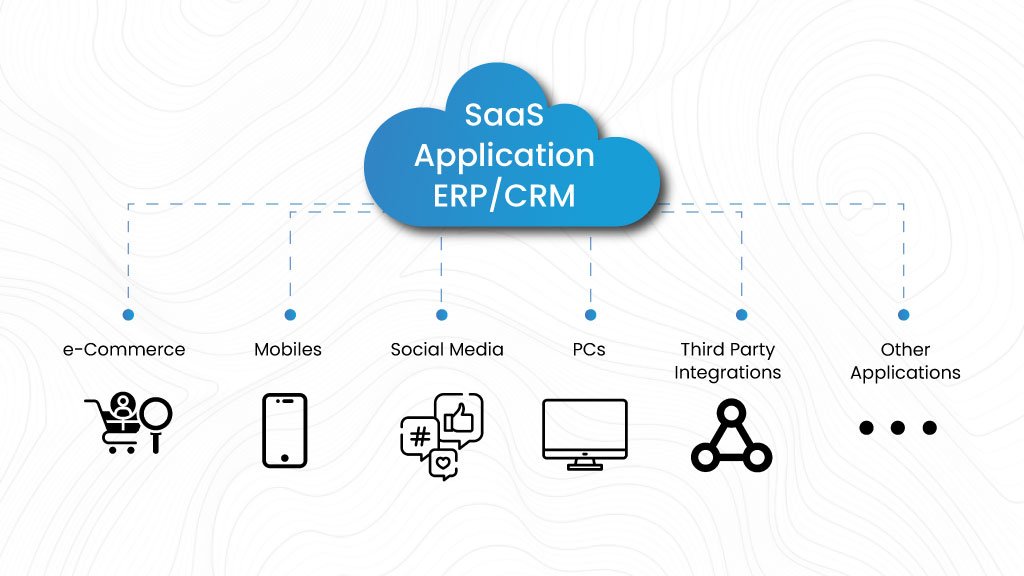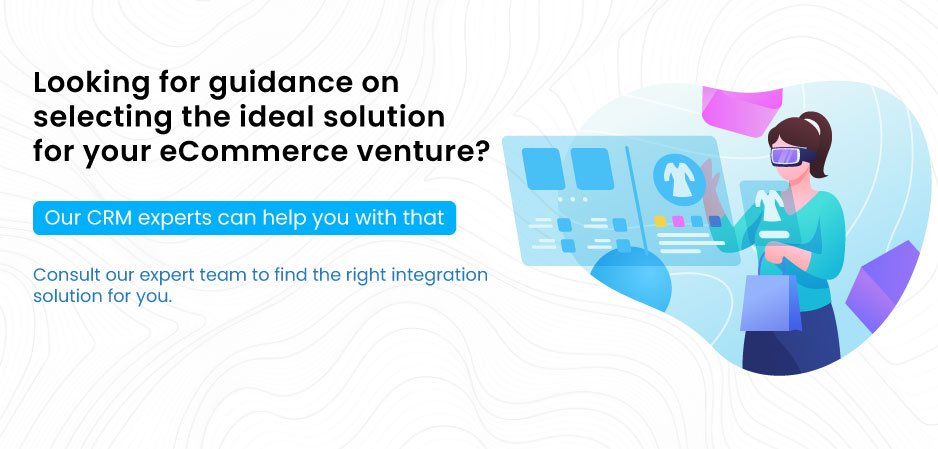Streamline your eCommerce operations using CRM
An eCommerce-CRM system consists of several modules that offer a number of features and functionalities. Let’s check the most useful features/ benefits of ERP systems here.
●Customer Management: Sync and maintain customer information such as contact details, purchase history, preferences, interactions, and feedback in a single CRM system synced with e-Commerce front end and accessible to appropriate Sales, Marketing, Customer service members.
●Product Information Management: With a centralized repository, sync all your product data (descriptions, pricing, and specifications) consistently.

●Inventory Management: Helps monitor overselling, stock level, and manage inventory seamlessly across several fulfillment centers, sales channels, and warehouses.
●Order Management: From sales order capturing to generating invoices and automated processes for order workflow, an integrated CRM makes sales tracking simple for you.
●Multi-Channel Integration: With the right customized integration, you will be able to integrate your e-commerce store with multiple sales channels. For example, social media platforms like salesbot too. Thus, giving you a unified platform to manage all your sales, inventory, and customer data.
●Real-Time Analytics: Business thrives on data driven decision-making skills. Integrating CRM with eCommerce lets you in on a comprehensive report with key metrics such as sales performance, customer behavior, inventory levels, etc.
●Financial Management: Manage accounts seamlessly by the book and maintain compliance with all tax policies and seamless tax management alongside invoicing,
financial reporting, managing accounts receivable/ payable, etc.
●Business Intelligence: With the help of advanced analytics tools, get a deeper insight into critical factors like industry trends, opportunities, demand fluctuations, etc. e-commerce CRM integration can be set up in several ways based on the business’s unique needs.
●One-Way Integration: In this type of CRM and e-commerce integration, data is shared across the two platforms. But it’s not shared in real-time. Rather, the data is updated periodically in intervals.
●Two-Way Integration: Data synchronization happens in real time, updates made in the e-commerce store are reflected in the CRM systems and vice versa. E.g., Sales Order info is synced right away with CRM and updated in the CRM system. Inventory level is modified as per the number of products ordered by a customer.
●Custom Integration: If you want your eCommerce integration tailored to your unique business needs, custom integration is the way to go. You have the flexibility to select the modules you retain, the functionalities you employ, and the design and operation of the dashboard for you and your team.
●Partial Integration: A business may not need to integrate all these processes in eCommerce with a CRM system. Businesses can choose to integrate these specific processes to trigger the corresponding automations in CRM as part of partial integration.


